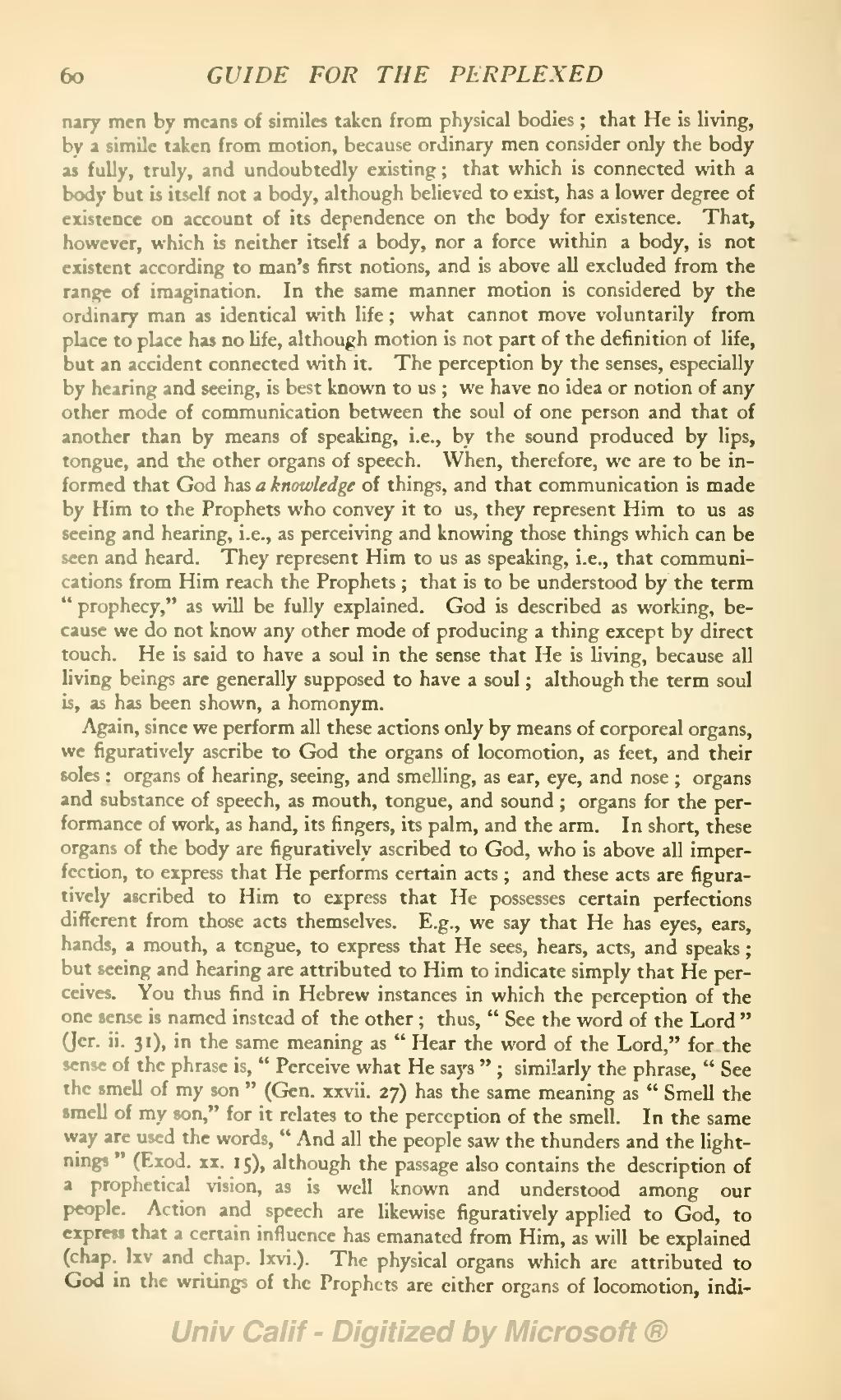men by means of similes taken from physical bodies; that He is living, by a simile taken from motion, because ordinary men consider only the body as fully, truly, and undoubtedly existing; that which is connected with a body but is itself not a body, although believed to exist, has a lower degree of existence on account of its dependence on the body for existence. That, however, which is neither itself a body, nor a force within a body, is not existent according to man's first notions, and is above all excluded from the range of imagination. In the same manner motion is considered by the ordinary man as identical with life; what cannot move voluntarily from place to place has no life, although motion is not part of the definition of life, but an accident connected with it. The perception by the senses, especially by hearing and seeing, is best known to us; we have no idea or notion of any other mode of communication between the soul of one person and that of another than by means of speaking, i.e., by the sound produced by lips, tongue, and the other organs of speech. When, therefore, we are to be informed that God has a knowledge of things, and that communication is made by Him to the Prophets who convey it to us, they represent Him to us as seeing and hearing, i.e., as perceiving and knowing those things which can be seen and heard. They represent Him to us as speaking, i.e., that communications from Him reach the Prophets; that is to be understood by the term" prophecy," as will be fully explained. God is described as working, because we do not know any other mode of producing a thing except by direct touch. He is said to have a soul in the sense that He is living, because all living beings are generally supposed to have a soul; although the term soul is, as has been shown, a homonym.
Again, since we perform all these actions only by means of corporeal organs, we figuratively ascribe to God the organs of locomotion, as feet, and their soles; organs of hearing, seeing, and smelling, as ear, eye, and nose; organs and substance of speech, as mouth, tongue, and sound; organs for the performance of work, as hand, its fingers, its palm, and the arm. In short, these organs of the body are figuratively ascribed to God, who is above all imperfection, to express that He performs certain acts: and these acts are figuratively ascribed to Him to express that He possesses certain perfections different from those acts themselves. E.g., we say that He has eyes, ears, hands, a mouth, a tongue, to express that He sees, hears, acts, and speaks: but seeing and hearing are attributed to Him to indicate simply that He perceives. You thus find in Hebrew instances in which the perception of the one sense is named instead of the other; thus," See the word of the Lord" (Jer. ii, 31), in the same meaning as" Hear the word of the Lord," for the sense of the phrase is," Perceive what He says": similarly the phrase," See the smell of my son" (Gen. xxvii. 27) has the same meaning as" Smell the smell of my son," for it relates to the perception of the smell. In the same way are used the words," And all the people saw the thunders and the lightnings" (Exod. xx. 15), although the passage also contains the description of a prophetical vision, as is well known and understood among our people. Action and speech are likewise figuratively applied to God, to express that a certain influence has emanated from Him, as win be explained (chap. lxv and chap. lxvi.). The physical organs which are attributed to God in the writings of the Prophets are either organs of locomotion, indicating
